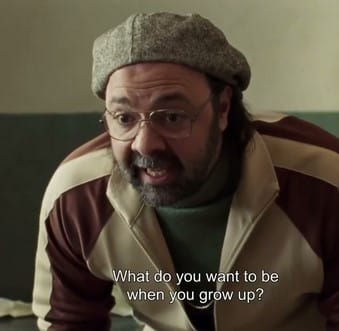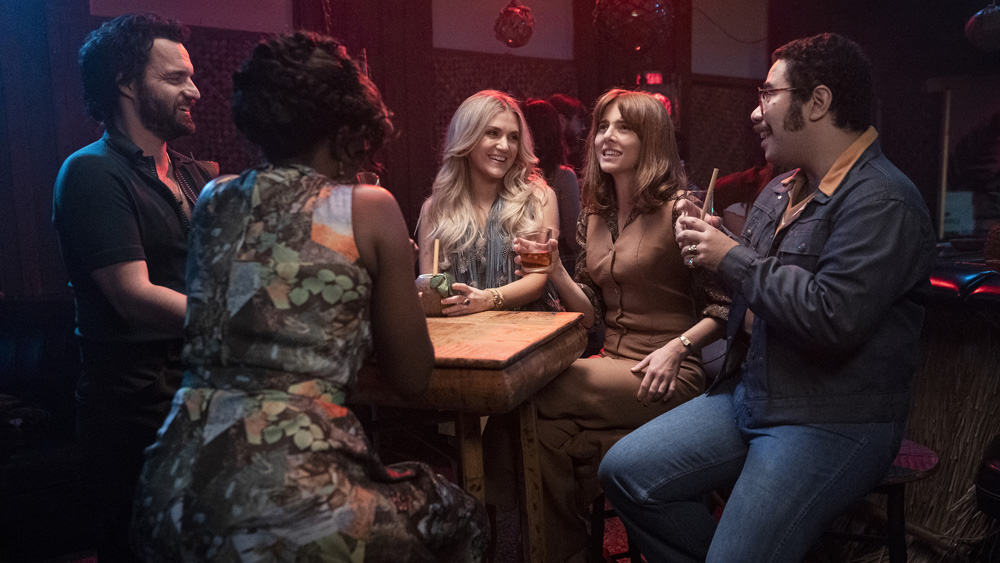Watercooler Pick
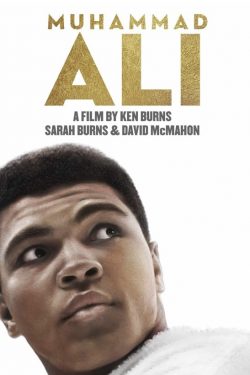
Muhammad Ali
- Series
- Where to Find It: PBS, Amazon Prime
- Rating: TV-14
- Release Date: 2021
- Seasons: 1
- Episodes : 4
- Length: 40-120 minutes
Recommended by:
Share on social media
Find More Watercooler Picks
The life of three-time heavyweight world champion and cultural icon Cassius Clay, who later became Muhammad Ali. From his rise to prominence in the ring to his later defeats and final decline, set against the backdrop of his controversial and embattled life, including his conversion to Islam, his outspoken defiance of the draft during the Vietnam War, and his late-life struggle with Parkinson’s disease.
There are many, particularly if you happen to be a boxing fan. Writer and sports legend Kareem Abdul-Jabbar, boxing promoter Bob Arum, essayist Gerald Early, The New Yorker editor David Remnick, and poet Wole Soyinka are just a few of the people who weigh in on Ali and his legacy. Keith David, veteran of many Ken Burns projects, returns as narrator.
Ken Burns is to the documentary what Gregor Mendel was to mapping genetic mutations in pea plants: his name is more or less synonymous with the pursuit itself. And Burns has proved himself capable of doing a lot with a little, having found ways to build a visual backdrop for his narrative even when photographs and film were scarce, as he did with The Civil War.
But in the case of Ali, who is surely one of the most-filmed, most-photographed people in recent memory, Burns has the opposite problem: there is almost too much material. Even better, it’s all amazing. Even before reaching his potential as an athlete, Muhammad Ali was a magnetic presence. In clip after clip, he speaks with the untroubled composure of a gifted entertainer who draws every eye in the room, who knows instinctively that he is doing what he was born to do.
Gloriously photogenic, endlessly charismatic, savagely witty, Ali is a bright-burning star who dominates frame after frame. The sheer arrogance of his early, unconventional style in the ring – hands at his hips, leaning back from the waist to dodge punches, seeming to land blows and combinations even as he dances backwards – takes your breath away. Footage of his early public appearances is similarly electrifying, and that effect only intensifies as the cultural vectors surrounding him grow sharper and more forceful.
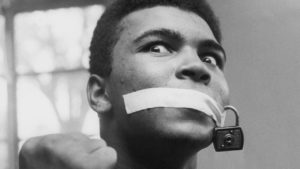 Episodes 1 and 2 glory in Ali’s growing celebrity and supremacy as a fighter, without shying away from the complexities he courted, both in public and in private. Today, it is easy to forget how shocking his conversion to Islam was, particularly to white America. The film unflinchingly examines that conflict and all its racial undertones. The bigger shock to modern sensibilities is in how frank mainstream media was in its overt racism back then – only a few decades ago. And Ali, disorientingly, seems at times to co-opt some of white America’s prejudices, weaponizing its insults and scorn against his Black opponents.
Episodes 1 and 2 glory in Ali’s growing celebrity and supremacy as a fighter, without shying away from the complexities he courted, both in public and in private. Today, it is easy to forget how shocking his conversion to Islam was, particularly to white America. The film unflinchingly examines that conflict and all its racial undertones. The bigger shock to modern sensibilities is in how frank mainstream media was in its overt racism back then – only a few decades ago. And Ali, disorientingly, seems at times to co-opt some of white America’s prejudices, weaponizing its insults and scorn against his Black opponents.
Arguably, much of Ali’s talk was just theater, an early incarnation of the choreographed scuffles at weigh-ins that 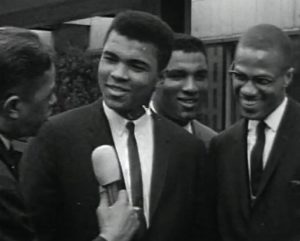 still reliably precede boxing matches today. But there were deeper currents with Ali, including his entanglement with Elijah Muhammad, founder of the Nation of Islam, as well as his friendship and subsequent break with Malcolm X. If that all sounds rather political, true fight fans may find more of what they’re looking for in Episode 3, with its detailed breakdowns of some of Ali’s most famous battles in the ring, including his long and brutal rivalry with Joe Frazier. Episode 4 finds Ali rising from the ashes to regain his title, and turn aside from a career in conflict to begin his reinvention as a philanthropist, speaker, and activist for peace.
still reliably precede boxing matches today. But there were deeper currents with Ali, including his entanglement with Elijah Muhammad, founder of the Nation of Islam, as well as his friendship and subsequent break with Malcolm X. If that all sounds rather political, true fight fans may find more of what they’re looking for in Episode 3, with its detailed breakdowns of some of Ali’s most famous battles in the ring, including his long and brutal rivalry with Joe Frazier. Episode 4 finds Ali rising from the ashes to regain his title, and turn aside from a career in conflict to begin his reinvention as a philanthropist, speaker, and activist for peace.
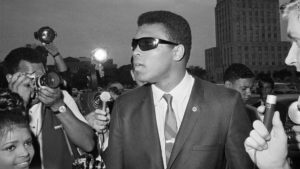 This is essential viewing for fight fans – but even if boxing isn’t your thing, there’s no better focal point to examine the turbulent racial, religious, cultural, and political currents that shook America throughout the 1960s and 70s. As proud in defeat as he was in victory, Ali transcended the narrow theater of sport to become, for a time, the most famous man alive.
This is essential viewing for fight fans – but even if boxing isn’t your thing, there’s no better focal point to examine the turbulent racial, religious, cultural, and political currents that shook America throughout the 1960s and 70s. As proud in defeat as he was in victory, Ali transcended the narrow theater of sport to become, for a time, the most famous man alive.
Someone a generation older, or someone a generation younger. There’s no better measure of how much perceptions of Ali have changed – and how broad his cultural reach was and remains.
Keep a sharp eye on crowd scenes. Norman Mailer, Doris Day, Jesse Jackson, Frank Sinatra and Diana Ross are just a few of the famous faces you’ll spot at ringside or at post-fight parties.
- Moods: enlighten me, give me hope, grip me, inspire me
- Interests: conversation worthy, documentary, heroes/heroines, sports

Lara Kristin Herndon



